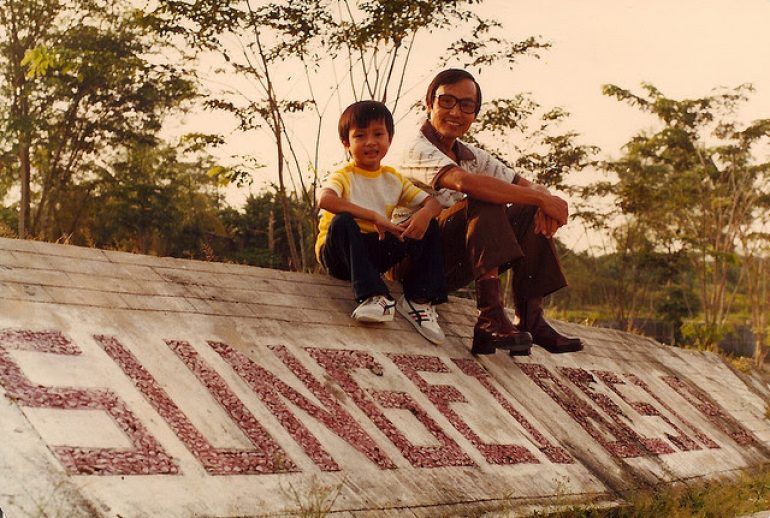A recent text with an acquaintance made me realize that I should write down what I remember of my experiences in refugee camps. In my twenties, I remembered many more details but now, like dew at daybreak, those memories are faint.
Tuan’s soon-to-be published memoir, Remembering Water, speaks to his “experiences of returning to Vietnam, the family members with whom I’ve reconnected, and the people I’ve met and conversed with on my return” in a few months. I read the excerpt and recognized the name of his camp. I was in the same camp a year before he arrived. I sent a few messages into the stream, hoping that by talking about it with someone who was also there, I can unlock my own experiences:
Me: I didn’t realize until I read the excerpt that your family was also in Bataan — we’re were there in 1984, then transferred to Kuala Lumpur before the outskirts of Manila… excited to read the rest! [Here, I had the sequence of our stays incorrect.]
Tuan: Oh wow, I was there in 1986. Were you still there at that time?
Me: Actually – we were blown off course so stayed at a pretty primitive camp in Pulau Bidong, then Kuala Lumpur, then Bataan. We left in the middle of 1985, so don’t think we would’ve crossed paths. But I still have memories of making toy boats out of used toothpaste tubes and floating them down (drainage?) waterways. And having to line up to get daily rations.
Tuan: I love these stories – I made toy sailboats in Saigon as a kid out of styrofoam and leafs or paper as sails and set them on potholes. Yah, we lined up for rations as well. How old were you when you were there?
Coming off that exchange, I’m trying to remember more. Here are some stories that may not all have been experienced by me personally. Maybe I’ve spackled on bits and pieces of other conversations, photos and retellings alongside my own memories.
A slight mark
After a harrowing boat journey, my family was plucked from the edge of the Gulf of Thailand by the Yukon Range oil tanker, then deposited with the Malaysian government on the small rocky island of Pulau Bidong.
I have a slight mark on my lower lip, today. A little purplish asteroid floating on the outer rim of my top lip. I remember dark cabins that smelled of mold. The jungle crept into our camp. The cabins were on stilts. I don’t know if we had rooms, mosquito nets, or furniture. The roofs must have been made of tin. I do remember running along dirt paths, rounding a corner, perhaps there was a ladder that led up to one of the cabins in the periphery. My mom told me that I ran into someone — a man or woman, perhaps one of the camp workers – carrying a large pot. My lips bled. I imagine it might have been one of those large stockpots. I’m sure I cried. I was turning five then, and I must have cried all the time from the trauma of leaving home, passing the oceans, and landing in the jungle. But I don’t recall.
Shit
The first memory that I have of how feces smelled was in this refugee camp – Hell on Earth – Pulau Bidong. I remember my brother and me walking out of the clusters of moldy cabins and up hill, past tangled roots and wet undergrowth. There was a small brook. The water was clear and running well. And there, we’d squat. Was the jungle silent, or alive with sounds? I can’t remember. I remember the immediate stench of our release, then how it settled into the tang of human droppings around the brook. Better out there, I suppose, than whatever outhouses or toilets the camp had.
I didn’t learn how to sit on a toilet until I got to the US. It was at my aunt’s place. Someone – perhaps my brother, perhaps my cousin – walked into the bathroom while my haunch hovered over the toilet bowl. Maybe it was my dad, or it was my brother – who shut the door and instructed me in the finer points of getting my skinny butt on the cool porcelain seat. I’m sure this was a memory — but yet — how could I not have been introduced to a western toilet before? I must have used one on the oil tanker that rescued us. If not there, then perhaps on the airplane that carried us across the Pacific to San Francisco. Or in the hotel that we stayed before flying to Texas to meet our families.
Parrot Fish
